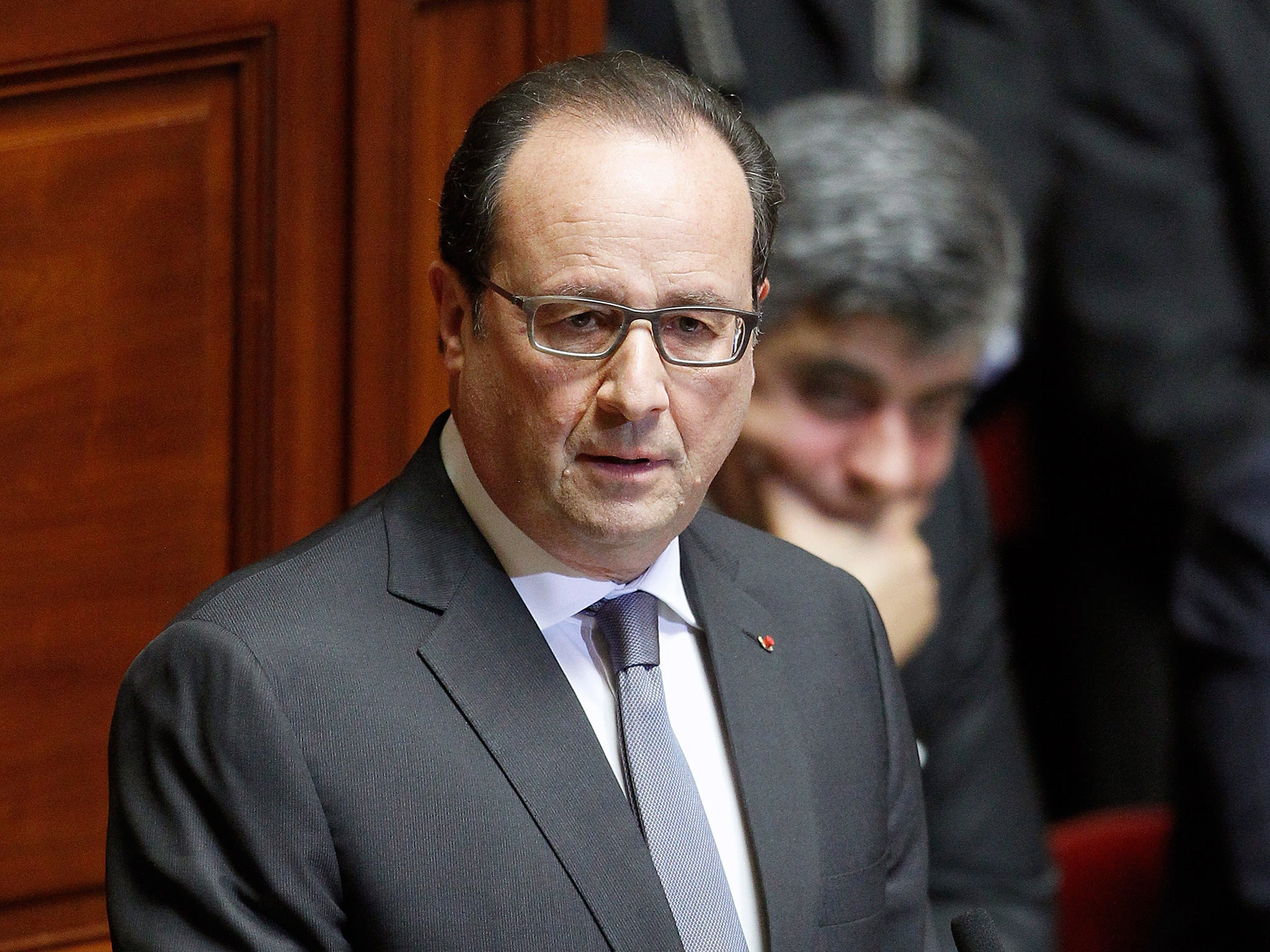Paris attacks: How Francois Hollande's pledge of 'merciless' war on Isis scattered his right-wing critics
The French President's hard-line speech stole the best ideas of the French right and discarded the stupid ones

They came expecting to see “Flanby” – the nickname given to François Hollande because of his supposed likeness to a brand of caramel custard. Instead they found François the Fighter, the man who has dispatched the French military into two foreign conflicts in three years and now pledges to wage “merciless” war against Isis.
President François Hollande may or may not have scared Isis with his hard-line speech to both houses of the French parliament on Monday. He scattered his right-wing domestic critics by stealing their best ideas, discarding their stupid ones and going further, in some areas, than even the most bellicose right-wingers had demanded. Did his proposals make sense? Will they make a difference?
Some critics on the left accused Mr Hollande of making the same mistakes as George W Bush did in his post-9-11 Patriot Act, seeking to defend liberty by destroying liberties. French security and constitutional experts were, on the whole, impressed. They said that Mr Hollande had rightly accepted that some traditional civil liberties must be sacrificed, or suspended, to protect Western values – and lives – from an unprecedented new form of warfare.
Mr Hollande proposed a three-month extension of the existing state of emergency, which gives draconian powers of extra-judicial investigation and arrest to the French state; a change in the constitution to make such powers easier to adopt in future; an extra 9,500 jobs in security, judicial and border control services; a rapprochement with Russia to strengthen military action against Isis; and radical legal reforms to allow easier expulsion of illegal immigrants and the stripping of French citizenship from terrorists with dual nationality.
He also announced that he was triggering the “mutual defence” clause in the EU Lisbon Treaty to oblige the other 27 member countries to join in the fight against “war terrorism”. There were also notable gaps. Mr Hollande spoke of his “cold determination” to “destroy” Isis but made no mention of the possibility of deployment of French or American or any other foreign ground troops in Syria or Iraq.
More surprisingly, in a speech at the Palace of Versailles, the French President never once pronounced the words “Islam” or “Muslim” or “Islamism”. He spoke only of “assassins” and “jihadist terrorists”, of “Frenchmen who had murdered other French people” to attack “our values, our youth and our way of life”.
Mr Hollande’s critics on the right were startled by how far he went. The former President Nicolas Sarkozy’s “Républicains” were left, rather lamely, to complain that the proposed constitutional changes were a distraction and unnecessary.
Why is constitutional change needed? The more than 300 police raids made on suspected Islamist sympathisers in the last two days would not have been possible without the state of emergency declared by on Saturday.
The raids and arrests were made without any formal criminal or judicial investigation having being launched – something that would have been illegal under normal conditions. There are no provisions for a state of emergency in the constitution. The action was taken under a 1955 law, passed during the Algerian civil war.
Mr Hollande’s officials argue that it is time that the constitution is amended to allow governments to declare an “emergency” for longer periods, with new civil rights safeguards which do not exist at present. Cleverly, Mr Hollande has revived an idea put forward in 2007 by the former right-wing Prime Minister Edouard Balladur – and rejected at the time by President Nicolas Sarkozy.
The Elysée argues that the existing cumbersome emergency power law should be streamlined and adapted to combat warfare by terrorism, which did not exist 60 years ago. A constitutional change would also allow constitutional protections which do not exist at present.
Critics on the left say this puts France on a slippery slope to arbitrary powers of investigation and indefinite arrest, which might be safe in the hands of “Flanby” Hollande but not necessarily in the hands of future governments.
“We are fighting for an ideal. To start off by betraying it is to weaken our cause from the beginning,” wrote Laurent Joffrin, editor of Libération.
Subscribe to Independent Premium to bookmark this article
Want to bookmark your favourite articles and stories to read or reference later? Start your Independent Premium subscription today.

Join our commenting forum
Join thought-provoking conversations, follow other Independent readers and see their replies